Faculty Job: Myths & Realities – an interview with Margaret Frank
About you
Describe your journey from student to newly appointed faculty
I did my undergraduate at Barnard College, it’s the Women’s College at Columbia University in New York City. New York City is not the first place you would expect to fall in love with Plant Science, but I ended up taking a couple of plant courses during that time and they really sparked my passion for plants. My first job in plant science was in my college’s greenhouse, the Arthur Ross Greenhouse. It was like a little nature haven in the middle of Manhattan. I took care of the desert and tropical plants in the greenhouse, and learned a lot about the diversity of plant families. After college, I applied to over 50 lab tech jobs, and I ended up getting a lab manager lab position at the Harvard University Herbaria working in a molecular systematics lab. I applied for graduate school during that year when I realized that I wanted to be able to ask my own scientific questions. I earned my PhD in Cornell’s Plant Biology program working with Mike Scanlon on the comparative evolution of shoot meristem developmental programs in the seedless plant lineages – the bryophytes, lycophytes, and monilophytes. After my PhD, I moved to the Donald Danforth Plant Science Center in Saint Louis where I developed my own research program on graft genomics with Dan Chitwood and Blake Meyers. In 2018, I was delighted to have the opportunity to move back to Cornell where I’ve started my own lab in the School of Integrative Plant Science.
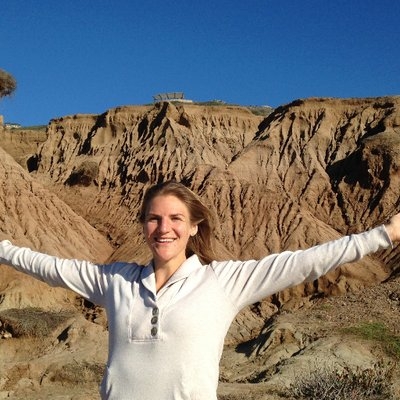
What inspired you most to pursue your current career?
It was spring 2005 when I took a plant physiology class and realized plants are extremely complex and there are a lot of open questions. I spent the following summer working in a research lab at Barnard College that was funded by a Howard Hughes SURP. I worked on cloning a gene that controls shoot apical meristem maintenance in Arabidopsis. In retrospect, I was a very slow researcher, but I really loved being in lab. From that point on, I aggressively pursued research opportunities.
What is the major focus of you research team?
We work on the local and long distance signaling of plant grafting. On the local level, we are looking at the involvement of cell-to-cell signaling during graft junction formation. With regards to long-distance signaling, we are using comparative genomics to investigate the putative function of mobile messenger RNAs to serve as long-distance signaling molecules. We do most of this work in tomato and relatives in the Solanaceae family, because these crops are routinely grafted for agricultural production, they exhibit a high level of grafting success, and they are an excellent model system when it comes to molecular genetic resources.
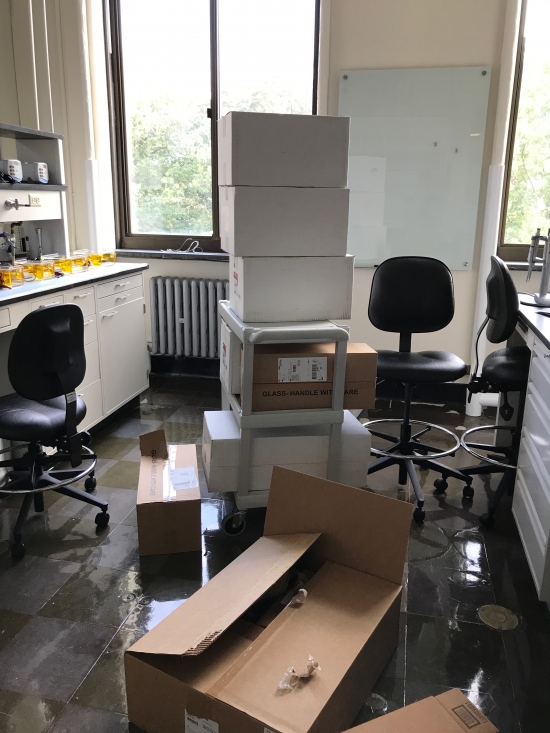
Which conferences do you regularly attend?
I love going to meetings, and I can’t wait for travel to safely resume. I usually attend the annual Plant Biology conference hosted by ASPB, the Plant and Animal Genome meeting in San Diego, and this year I went to Botany as well. I also like smaller, more intensive conferences like FASEB Mechanisms in Plant Development, the Gordon Plant Molecular Biology meeting, and Plant Vascular Biology.
Who are your current collaborators?
We collaborate broadly. Our main work focusses on grafting, but we do a lot of other research that has to do with promoting sustainable agriculture. We have collaborations that range from the local level, where we’re involved with Cornell’s Digital Agriculture initiative, to the international level, we just started a BSF-funded project with Idan Efroni’s lab. Collaborations are crucial in science, especially when you’re in a new lab. The projects that we’re able to tackle are made so much stronger through our collaborations.
About your job hunt
How long did it take you from the beginning of searching faculty jobs to get one?
I was quite lucky. I started applying in the fall of 2016, and signed a job offer with Cornell in 2017. I sent out 10 applications between September 2016 and January 2017. I was planning to be on the market for 2 years, so I started applying early.
During your job hunt, what did you learn about yourself or about the process of finding an academic job?
I was told many times that finding and landing a job is about having a good fit with your future academic home. I didn’t really believe this was true until I went through the process. It’s an awesome experience when your research, teaching, and outreach goals fall in line with the vision of your school.
Based on your experiences and the feedback you got during the job search, what do you think are key skills and accomplishments that a successful candidate must demonstrate?
It’s important to distil your research vision down to a clear message that gets people excited about what you’re proposing to tackle in your new lab. Departments are hiring someone who is going to carry out a research program for decades to come, and they want to bring in research that they are excited about. I think it’s also important to be flexible with teaching. A lot of schools have specific teaching needs that they need to fill. If you can only teach a narrow range of classes, then it is hard to create that fit within a department.
Which published paper was the most influential for your career or getting the faculty job?
My biggest papers are not out yet. They are coming soon. There are some people who go on the job market after they have a big paper. I think there are a lot of people who go on the market with a collection of papers, skills, and a clear research vision. I fall into the latter category. I was involved with plant phenotyping and quantitative genetics work early in my postdoc and then I moved into long distance signaling and applications in agriculture later in my postdoc. The combination of those skills helped me to find my unique future research niche that I have used to build my lab.
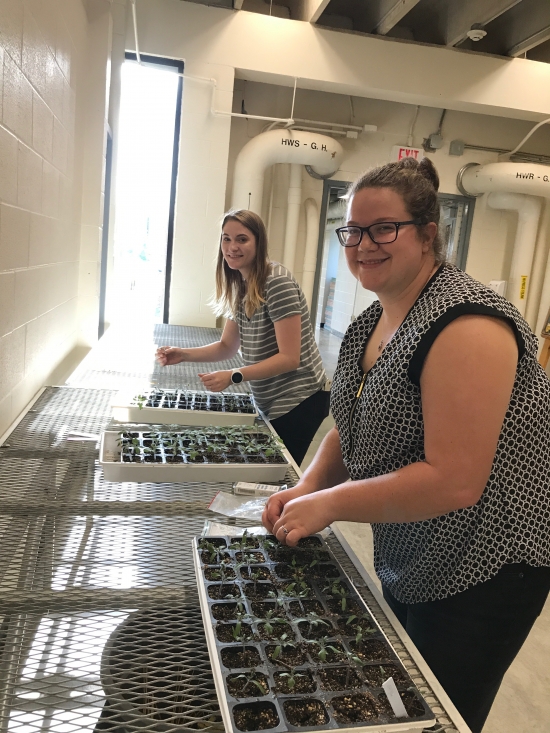
Advice for job applicants
Beyond your research and publications, how did you prepare for the academic job hunt during your postdoc?
I was a visiting scientist at University of Georgia for one semester (September 2016 to March 2017) and that was also when I sent in all of my applications. I remember locking myself in the office and writing my research statement. I also received a lot of helpful feedback from my host, Alex Bucksch, who had recently been on the market. It’s hard to prioritize applications when there’s lab work to be done. I was lucky to be in that environment where I was physically separated from most of my data collection. It’s really helpful if you can separate yourself from the lab, even if it’s just for a week or two, and invest that time in your future job search.
How did you prepare for the actual job hunt? How did you identify potential opportunities, prepare your application materials, and prepare for interviews?
I applied to a range of positions hosted in Biology, Molecular and Cell Biology, Plant Science, and Agriculture departments/sections. I also applied to a USDA job, but there was a hiring freeze shortly after I submitted that application. I was really focused on having colleagues who I could work with and having access to research facilities and field space. My other consideration was geography; I’m in dual career relationship and we both needed to have fulfilling jobs.
About you as a faculty member
What were the initial challenges to starting your own lab?
Ordering supplies and organizing the lab was my biggest initial challenge. The best piece of advice that I received when I was starting my lab was to think about all of the supplies you need to take a live plant and run a gel of a PCR product amplified from that plant. It took me about 3 months to order all of the supplies to get there, and that does not count the time it took to train new people and get experiments running. I was fortunate to higher one of my former REU students for the summer who helped me accomplish that first PCR. I was also lucky to get an excellent PhD student in my lab right off the bat. Now that the lab is up and running, bringing in new students and postdocs has more or less flowed naturally. The lab has filled up faster than I expected and now we have a community where people can learn from each other, which is AWESOME!
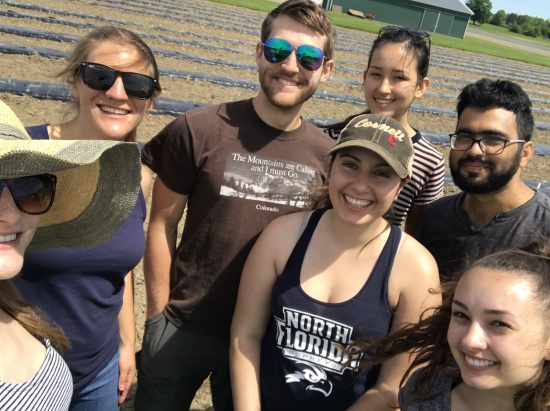
What qualities do you look for when recruiting for your lab?
I look for people who are driven, creative, and curious. I also prioritize interpersonal skills – it’s important that everyone in the lab respects each other and can communicate clearly with one another.
How do you manage “work-life balance” as a faculty?
The simple answer is RUNNING. Running has definitely helped me cope with the ups and downs of the job. The more complex answer is that work-life balance has been a two way street. Sometimes it’s all work, like when I’m coming up on a grant deadline, and other times it’s all life, like when our first child was born last fall. Now that we have a baby at home, I’ve learned that my science life provides balance for my home life.
Whom do you like to thank for supporting and inspiring you along this journey?
I have so many people to thank, but I’ll focus on my science mentors. My undergraduate mentors – Kristen Shepard, Hilary Callahan, and Matthew Palmer; my PhD advisor – Mike Scanlon, my postdoc advisors – Dan Chitwood and Blake Meyers; and my faculty mentors who are helping me navigate life as a PI – Adrienne Roeder and Jim Giovannoni.

If prospective students and postdocs want to reach you, where can they contact you and read about your work?
Email: [email protected] Lab
Website: https://www.franklab-cornell.org/
Twitter: @Margare41291282


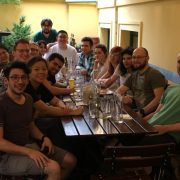
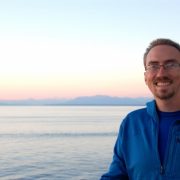
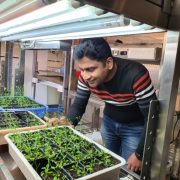
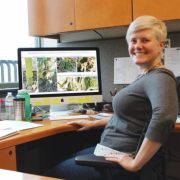
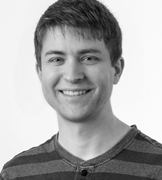
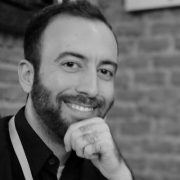
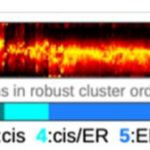
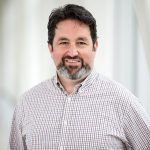
Leave a Reply
Want to join the discussion?Feel free to contribute!